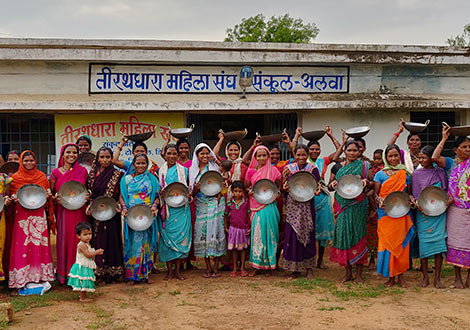The Magic of the Iron Wok
Story & Photographs: Ajay Gupta
“Aami sapay didi, roj loha kadhai ne randhun khawan”
(We will all cook food in iron wok every day)
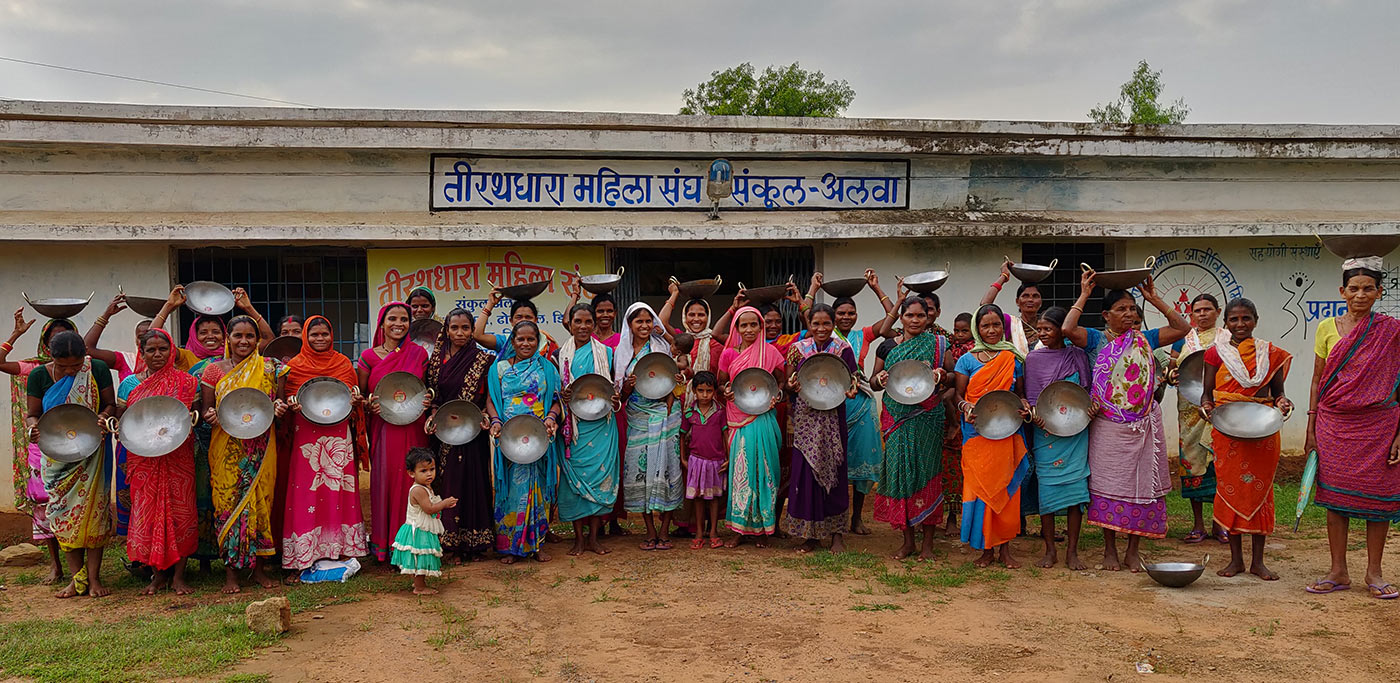
According to National Family Health Survey more than 68% of the women in Bastar are anaemic. Most women belong to the Gond tribes, followed closely by the Halba and Dhurua tribes.
Though these tribes have small land holdings, they mostly work as agricultural labour during the Kharif season. During other seasons, they gather various kinds of non-timber products from the forest and work in nearby villages as daily labours. Most women get work for about 40 days in a year, earning about Rs.100 a day. The average annual family income of these communities would be around Rs. 45,000/- a year, which roughly amounts to Rs. 123/- per day.
There is little known about their health issues. Whatever one does know is through SHG and Village Organisation (VO) meetings. Here discussions about women’s health issues are initiated. Women often shared that they feel weak and tired after doing just a little work. Backaches, headaches and dizziness were found common in women.
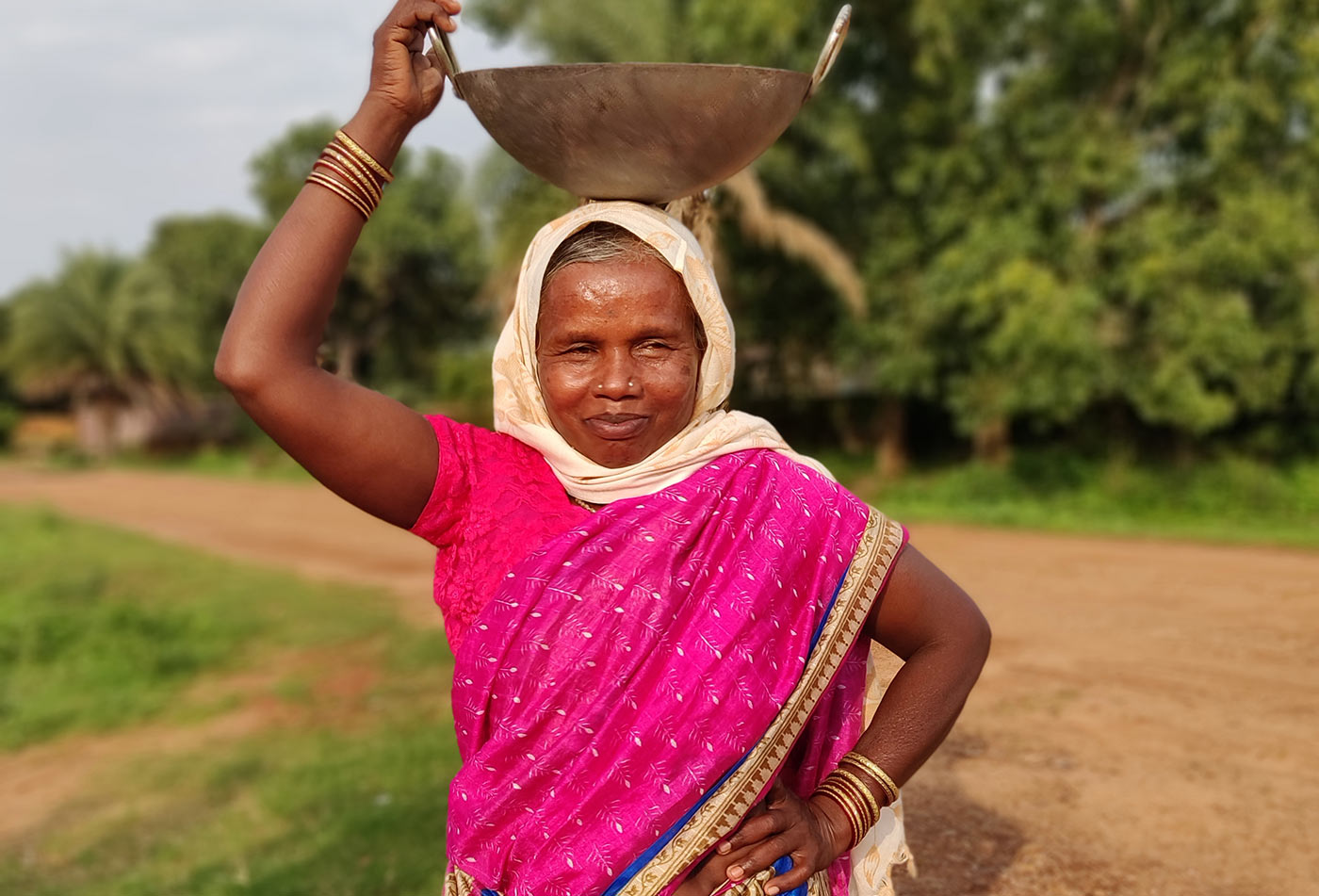
Kamalbati from Alwa village shared,
“My husband and I go to our paddy field for work. I usually have to stop my work and rest for a while as I feel weak. Unlike my husband, I am unable to work for a long period of time. Many a days, I return home early as I just cannot continue to work”.
In the year 2016, PRADAN collaborated with PHRS (Public Health Resource Society) and initiated a drive on health and nutrition. Health mentors were appointed for each area. Their task was to identify and groom Community Volunteers (CVs) from each SHG. These CVs along with the SHG women discussed health issues in the weekly SHGs meetings and monthly VO meetings. Health and nutrition interventions were done with 184 SHGs, out of which members of 146 SHGs regularly discuss women’s health issues. Currently, there are four mentors and 116 CV actively working.
Women are made aware about health issues mainly through storytelling. The stories are primarily based on the health issues of the tribal women which help them to relate with the main character. Other activities like BMI (Body Mass Index) camps, tri-colour food events, trainings, didi mandai, etc. are also used to make womenfolk aware about various health issues.
In the meeting held last month, the VO discussed the perennial suffering from iron deficiency (anaemia). 46 years old Somari Mandavi, who works as a CV, narrated her story.
“I would feel weak and tired all the time. I was very disturbed as I thought I had some kind of disease,” she said. “When I attended the training programme in Tokapal and heard Ropanididi’s story, I realized that my suffering was due to lack of iron in the body and not any disease. Nilanjan bhaiya (Block Programme Officer, PHRS) gave us an easy solution for this.” Then giving a big smile she said, “All we need to do is cook in an iron wok.”
Remembering that their mothers used to cook food in iron woks, some women agreed to buy iron woks and start cooking their food in it.
With the help of volunteers, the importance of iron woks was discussed in every SHG. A list was made with the names of women interested in iron woks. In the first phase 70 women showed interest. The coordinator and the volunteers went to Jagdalpur and bought 70 woks at wholesale price. These woks were then distributed among all 70 women in the next meeting.
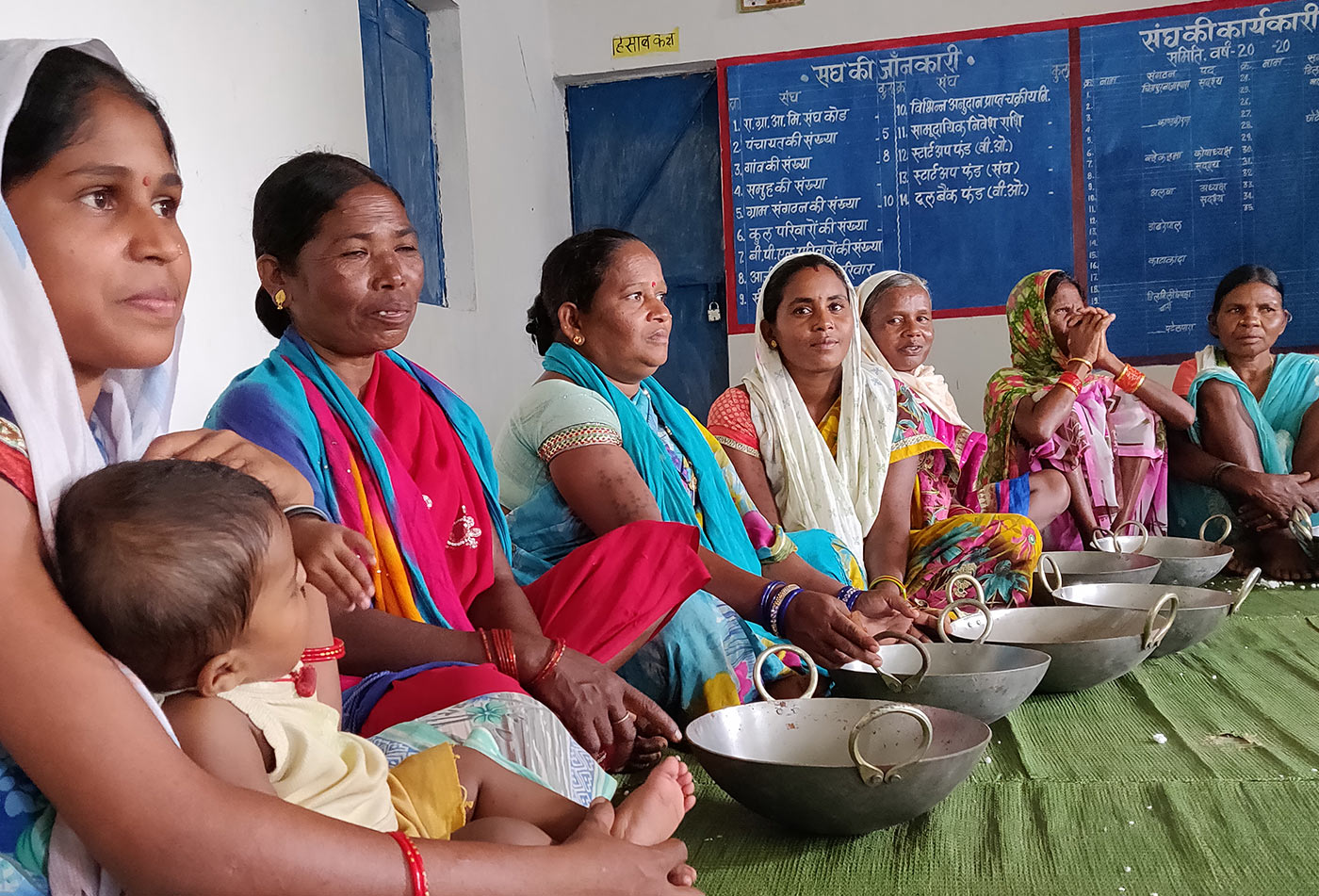
Initiating anything new is never easy. Here too, it wasn’t easy to convince the women to buy iron woks. Somari shares that many women from her hamlet refused to contribute and buy woks as they felt “these people will misuse our money”.
Another challenge that came up was that cooking in iron woks made food black in colour. Through a lot of discussion, it was finally decided that after the food was cooked in the iron wok, it should be put in a non-iron container.
It is amazing that despite all the challenges that came up, the women did not give up. They worked hard on convincing the others to start cooking in iron woks on a regular basis and fight anemia.
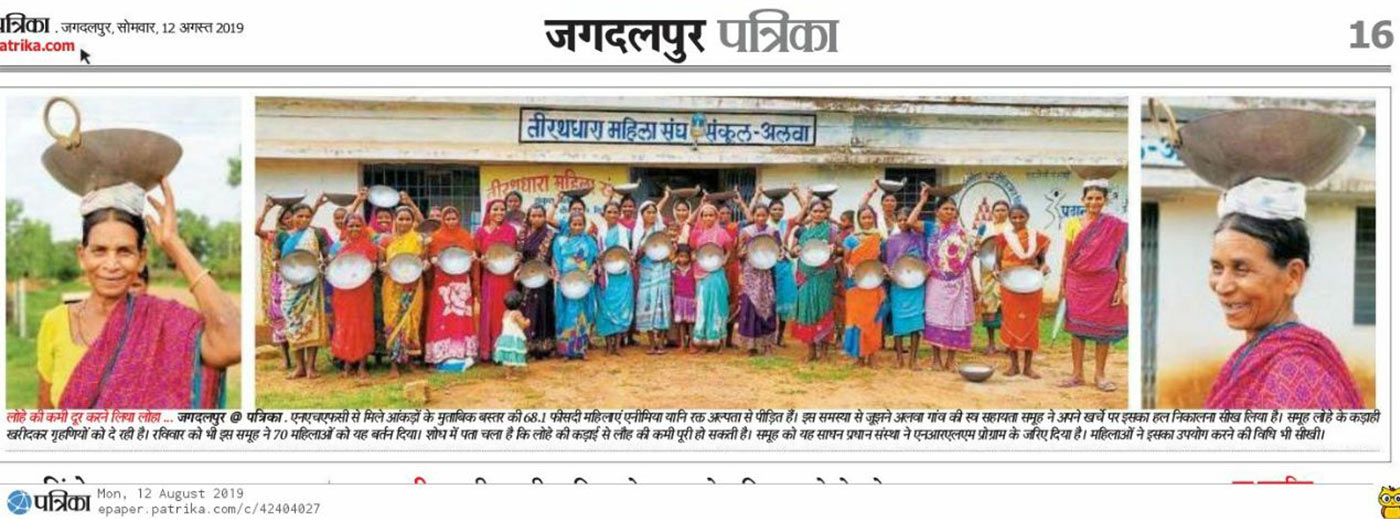
This effort of taking care of women’s health issues by PRADAN and the community was much appreciated and even covered in the local paper ‘Jagdalpur Patrika’. As they say, “Jaan hai toh jahaan hai!” (The world exists, if I exist).


